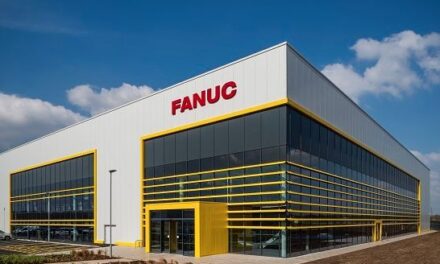Free trade has shaped the manufacturing supply chain we know today. However, a number of drivers are putting localism back on the manufacturing agenda, says MTA Director General, Graham Dewhurst, ahead of MACH 2014, the manufacturing technologies show.
With the dramatic decline in manufacturing demand that followed the economic crash of 2008, manufacturers discovered how difficult it is to turn around a global supply chain at short notice. They also witnessed firsthand the financial implications of failure to do so.
This is therefore one of a number of factors placing increasing pressure on manufacturers to localise their entire ecosystem in order to minimise their exposure to supply chain risk. The further the distance between the parties in the supply chain, the harder it is to maintain close collaboration, communication, and trust.
Another factor driving the localisation trend is labour costs. While emerging markets such as China and India have traditionally been attractive to manufacturers because of the lower wages, the latter have risen significantly in recent years. Other challenges include fluctuations in foreign exchange rates, protectionist politics and other barriers to free trade.
A move to source goods locally not only eradicates these issues but helps businesses reduce transport costs and emissions.
For companies that rely on global supply chains, a more localised approach to procurement and an investment in local suppliers can lower logistical costs and ensure reliable access to goods and services. It can also provide greater flexibility, efficiency and control. However, these benefits will not be realised unless companies are prepared to invest time and effort in nurturing stronger relationships with all their suppliers.
A recent study found that the average manufacturer in the UK has around 190 suppliers. Despite the supply (or value) chain being complex and comprising many parties, there remains a tendency for manufacturers to talk only to immediate partners. OEMs usually deal direct with their tier one suppliers who in turn manage their suppliers who in turn manage their suppliers and so on. Unsurprisingly, visibility of lower tier suppliers is regularly cited as their greatest management challenge by the, often multinational, firms at the apex.
Ranging from the components at the bottom of the supply chain through to the sub-system, instruments, users and outcomes of the chain, regular communication to aid the development of strong relationships is crucial.
One of the key aims of the UK Manufacturing Zone at MACH 2014 is to provide the opportunity for smaller manufacturers to network with blue chip companies operating in, among others, the automotive, aerospace, nuclear and medical sectors.
Relationships based on trust and transparency are central to keeping the supply chain flowing and is the reason why informal contacts that are created at networking events like MACH 2014 can be so useful.
Bringing the whole team into the equation, not just the sales manager and the buyers but the engineers and designers – who attend MACH because of its position as a technological showcase – can be the difference between a commercial relationship succeeding and failing.
Suppliers must provide clarity and transparency on their capacity and constraints; and suppliers must demand clarity from their customers on their volume and schedule requirements.
Problems occur when a delivery date is pushed back, brought forward or cancelled, or when an order volume is changed.
Entering into a well-designed contract from the outset helps cement a solid working relationship and establishes clear rules of engagement.
For smaller players looking to work with some of the industry’s largest names, the rewards can be great. They will likely be exposed to extremely high-quality techniques in areas such as lean manufacturing and design for manufacture, and total quality management. Much of this can drive continuous improvement within their own business, elevating their capability and credibility, additionally enabling them to attract more OEMs.
The longer your supply chain the more risk there is and the closer you suppliers are located to you the easier it is to maintain close collaboration, communication and trust.
It is our hope that exhibitors and visitors alike will use MACH as an opportunity to forge closer relationships with their supply chain partners, which will pay dividends in the years to come.
MACH 2014
MACH was established more than 100 years ago by the Manufacturing Technologies Association (MTA). Taking place 7-11 April 2014 at the NEC in Birmingham, the biennial exhibition brings together the latest developments and best innovations to come from the manufacturing technologies sectors.
New for this year, the UK Manufacturing Zone will showcase blue chip OEMs and tier one manufacturers including Airbus, Messier-Bugatti-Dowty and Rolls Royce. MACH provides manufacturers of all sizes and sectors the chance to network with key clients and prospects, gaining insight into their needs and future vision for the manufacturing supply chain.
For more information visit www.machexhibition.com or register your interest here


